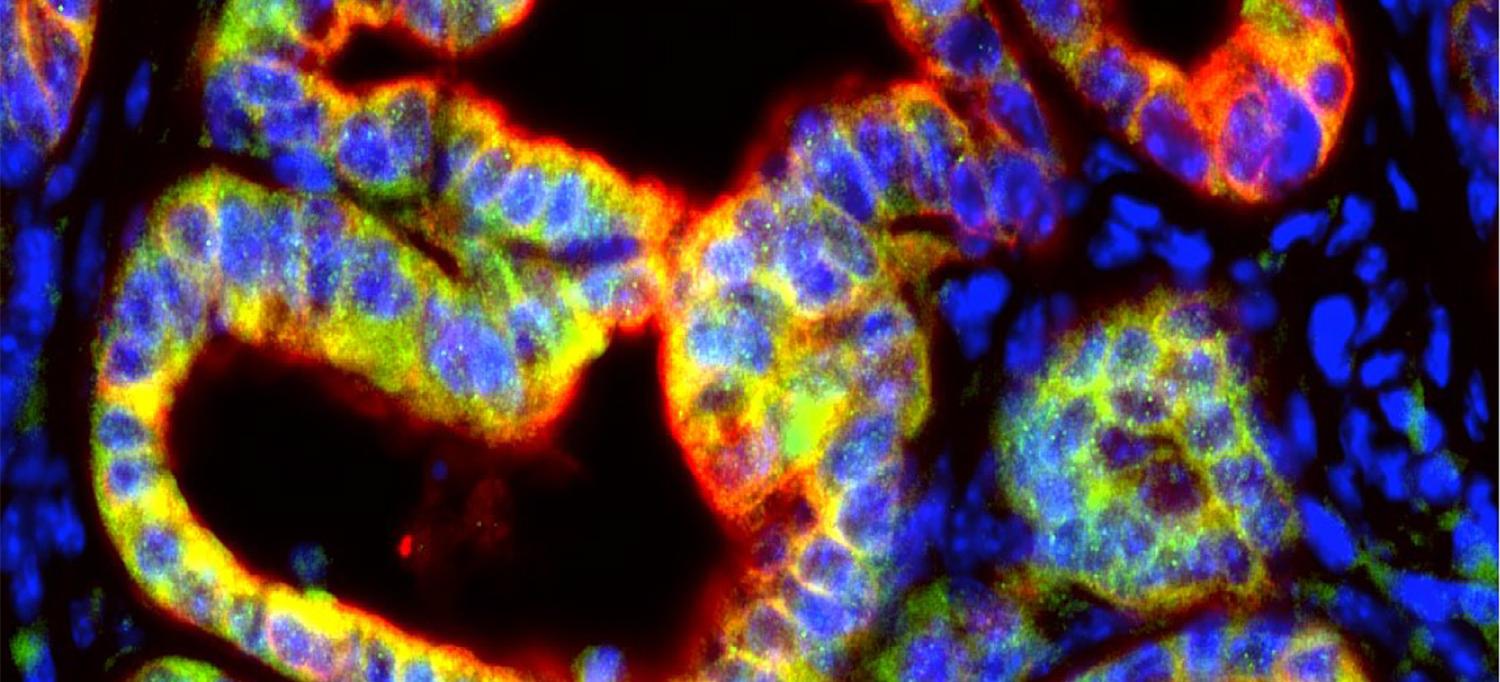Cancer Cells Secrete Signal To Turn Off Immune System Attack

Study Shows Cancer Cells’ Signal Turns Off Immune System’s Attack On Cancer Cells
Pancreatic Cancer Cells Secrete Signal That Turns Off The Immune System’s Attack On Pancreatic Cancer Cells
Article Based Upon Press Release
By NYU Grossman School of Medicine
NYU Langone Health
January 8, 2020
Content May Be Edited For Style and Length
A key immune signal has a previously unknown role in turning off the immune system’s attack on pancreatic cancer cells, a new study finds.
Led by researchers at NYU Grossman School of Medicine, the study found that an immune signaling protein, interleukin-1β (IL-1β), is made and released by pancreatic tumor cells. This was shown to reduce anti-cancer immune responses, which promoted the growth of pancreatic ductal adenocarcinoma, or PDA, a form of cancer that is usually deadly within two years.
The study found that blocking the action of IL-1β in mice with immune proteins called antibodies caused a 32 percent decrease in PDA tumor growth.
Other experiments combined the anti-IL-1β antibody, which gloms onto and neutralizes its target, with an already approved antibody treatment that shuts down the protein “checkpoint” called PD-1. To spare normal cells from immune attack, the immune system uses “checkpoints” on immune cells that turn them off when they receive the right signal. Cancer cells hijack checkpoints to turn off the system, leading to immune suppression of CD8+ T cells that would otherwise kill cancer cells. Therapies called checkpoint inhibitors counter this effect.
Though effective against many cancers, checkpoint inhibitors have failed in pancreatic cancer, with the response rate in tumors as low as roughly three percent in some trials, and the limitations attributed to poor CD8+ T cell infiltration and immune suppression. In the current study, adding anti-IL-1β antibodies to anti-PD-1 antibody treatment doubled the infiltration of such T cells into PDA tumors and increased the anti-tumor activity of PD-1 blockade by 40 percent.
Initial Trigger
The new finding is in line with past work in other labs that had described the microbiome, the mix of bacterial species in the pancreas, as being altered in the presence of PDA, and a factor in cancer growth. The field had traditionally assigned the production of IL-1β to immune cells, but the new work finds that pancreatic tumor cells can also make it in response to proteins given off by certain bacteria.
Bacterial products were found to activate proteins on the cancer cell surfaces called toll-like receptors, which set off chain reactions that were required for IL-1β production in cancer cells.
The research team also found that higher IL-1β production caused nearby pancreatic stellate cells to increase production of dense, structural proteins such as collagen. Desmoplasia is the overgrowth of such fibrous tissue that often occurs near pancreatic tumors, and which has been linked to treatment resistance.
Active stellate cells were also found to trigger production of the signaling proteins that attract immune cells called macrophages into tumors and programs them to become the type (M2) that suppresses immune reactions. Experiments also confirmed that higher IL-1β and M2 macrophage levels, along with fibroblast-driven desmoplasia, reduced the ability of cancer-cell-killing CD8+ T cells to enter tumors.
Along with Dr. Bar-Sagi and Das, study authors from the Department of Biochenistry and Molecular Pharmacology at NYU Grossman School of Medicine were Beny Shapiro, Emily Vucic, and Sandra Vogt. Das, who was a postdoctoral fellow, has since left NYU Langone and continues her work in immune oncology in the biopharmaceutical industry.
While no study author received financial compensation, the pharmaceutical company Novartis provided the mouse anti-PD1 and anti-IL-1β antibodies for this study. The work was supported by National Institutes of Health grants P30CA016087, CA210263, and T32GM115313, as well as by support from the Lustgarten Foundation Pancreatic Cancer Convergence Dream Team grant SU2C-AACR-DT14-14, Stand Up To Cancer, the Entertainment Industry Foundation, American Association for Cancer Research, and the Canadian Institutes of Health Research.
